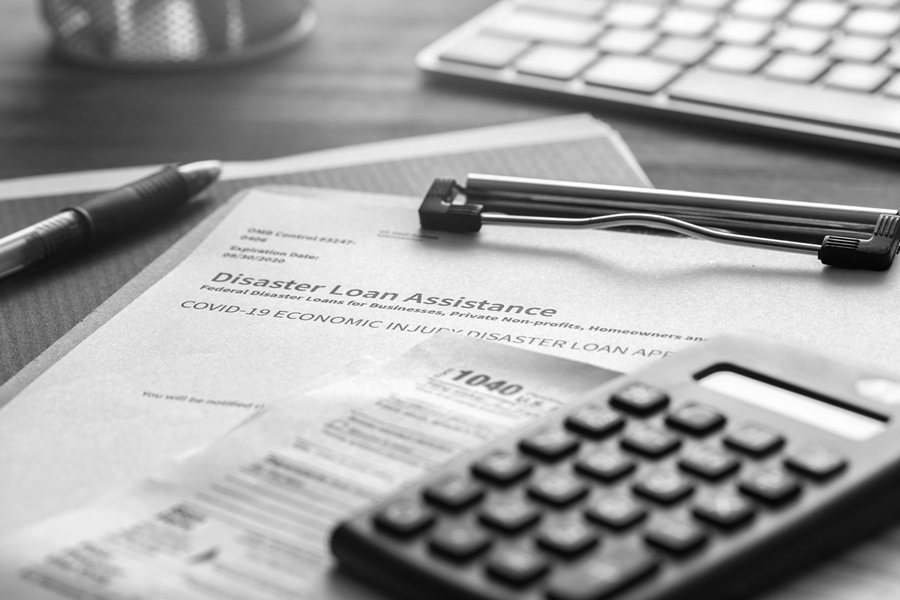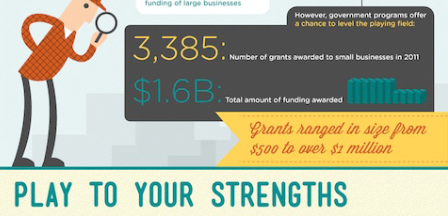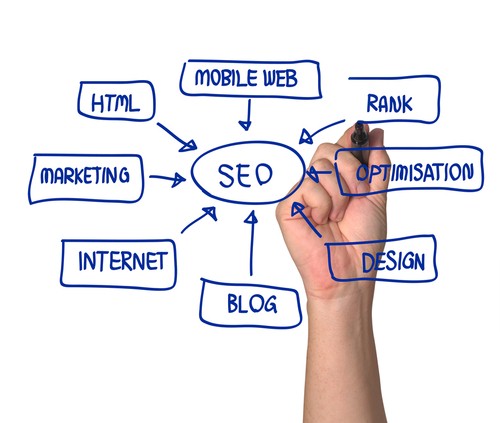Should you apply for a small business loan or grant to cope with the effects of the coronavirus? If you’re a business owner struggling to pay employees or invoices, this may give you enough cash flow to survive until restrictions are lifted.
Navigating this new environment may be challenging for a variety of reasons, including; high traffic to the various websites, banks that may only offer loans to existing customers, putting together the required documents, and more. However, for many small business owners, it’s essential to take the time to navigate these processes to take care of current business expenses and to keep the doors open after the crisis passes.
More funding options may soon become available from local, state, and federal government. If you have questions or need assistance, the Small Business Association (SBA) can help with resources online and at local offices.
To get started, first gather the required documents. Explore the main SBA programs and eligibility requirements to create a checklist of the documents you will need to apply for a small business loan or grant program that fits your business needs and situation.
Overview of Small Business Coronavirus Loan and Grant Assistance
In response to the coronavirus pandemic, the federal government passed two bills that assist businesses: the CARES Act and the Coronavirus Preparedness and Response Supplemental Appropriations Act. Both release funds to the Small Business Administration (SBA) for disaster loans. These options are a combination of conventional and temporary programs.
Paycheck Protection Program (PPP). Get assistance with payroll, utilities, mortgage interest, or rent using this special Small Business Association 7(a) loan. You may secure up to $10 million with interest rates not to exceed 4%. The SBA may forgive loans if companies meet certain requirements.
Economic Injury Disaster Loan (EIDL) Emergency Advance. If your small business is losing revenue due to the COVID-19 pandemic, you may be eligible for up to $10,000 in emergency economic relief. Small business owners can apply for a larger EIDL loan, but the first $10,000 is a grant that does not need to be paid back. You may use the loan for payroll, rent or mortgage, other debt, or paid sick leave.
SBA Express Bridge Loans. If you have an existing relationship with an SBA Express Lender, you can access up to $25,000 to pay your bills. The SBA Express Disaster Bridge Loan gives you fast access to funds while waiting on the EIDL to clear. It applies to businesses operating on or after March 13, 2020.
SBA Debt Relief. If you have a current SBA 7(a), 504, or microloan, this program covers your principal, interest, and fees for up to six months. It also provides relief for new loans issued before September 27, 2020.
Several states are releasing funds and creating programs to assist small business owners as well. Explore all your options by checking with your chamber of commerce, state, and local banks. Each may offer extra help for those impacted by COVID-19. Furthermore, look into options like:
- A refundable payroll tax credit assists those who don’t receive payment through the Paycheck Protection Program.
- You may defer payment of your part of payroll taxes for up to two years. It covers taxes owed on wages paid through December 31, 2020.
Is Your Small Business Eligible for an SBA Loan or Grant?
Eligibility requirements differ by loan or grant. In many cases, if you’re a sole proprietor, independent contractor, self-employed, or own a business with fewer than 500 employees per location, then you’ll qualify for SBA coronavirus funding. But some larger companies may also be eligible. Use the SBA small business size standards tool if you’re unsure of your eligibility.
Three organizations may help you determine eligibility for coronavirus relief programs:
- SCORE: Offers remote mentoring and local help with COVID-19 funding
- Small Business Development Center (SBDC): Provides local and regional assistance
- Women’s Business Center (WBC): Gives local support for women-owned companies
Each loan or grant also applies certain restrictions and may deny funding if a business owner or partner does not meet the standards and requirements.
Like many loan programs, your lender will complete a FICO Small Business Scoring Service Score (SBSS Score).
Typically, your business must have a minimum score of 130. Plus, your lender will also request a personal credit score for each guarantor. So, if your small business has more than one owner, it’s essential to check with each person to ensure they meet the eligibility requirements.
How to Apply for an SBA Loan or Grant
Review your coronavirus funding options on the SBA website. Each one provides in-depth details about the type of assistance and restrictions. You can find links to applications on state and federal websites. But, you will need to go to your SBA lender to complete lender-specific forms and provide additional documents. Download and print applications below:
- Paycheck Protection Program: PPP borrower application form
- (EIDL) Emergency Advance: COVID-19 Economic Injury Disaster Loan application
- SBA Express Bridge Loans: Program guide
- SBA Debt Relief: Contact your Loan Servicing Office for more information
Applying for a small business loan takes time. It requires all parties with 20% or more equity in the company to complete parts of the applications. To avoid delays, find required documents and speak with stakeholders or partners before beginning the application process.
Document Checklist for Coronavirus Financial Services
Be prepared by creating a packet that includes all potential documents needed for one or more applications. Requirements may vary by lender and by loan or grant, so you’ll complete additional forms at your lender’s office.
For example, for the EIDL emergency advance, you’ll need to provide proof of gross revenues, cost of goods sold, and combined annual operating expenses for the 12-months before January 31, 2020. Below is an extensive SBA loan and grant checklist of required documents and information.
Financial and Payroll Information
- Payroll information like the number of existing employees, including owners
- Number of jobs created or retained as a result of the loan
- 2019 company prepared financial statements or tax returns
- Business federal income tax returns for the previous three years
- Federal quarterly payroll tax reports on IRS Form 941 for 2019
- Federal end of year payroll tax information on IRS Form 940 for 2019
- Profit and Loss (P&L) Statement
- One-year projected financial statements
- Loan application history
Small Business Documents
- Either your Articles of Incorporation, Articles of Organization, Partnership Agreement, or Trust Agreement
- Your original business certificate or license
- A copy of your business lease and terms
SBA Small Business Coronavirus Loans and Grants: Owner Information
- List of ownership and affiliations in which owners hold a controlling interest
- Copy of driver’s licenses for all owners owning more than 20% of the company (at least one is required, even if no owners own 20%)
- Brief history and overview of the business and why you need the SBA loan
- SBA Form 912: Statement of Personal History
- SBA Form 413: Personal Financial Statement
Secure Loans and Grants During the Coronavirus Pandemic
Get the help you need by preparing your documents, keeping abreast of new programs for local assistance, and applying for all loans and grants available to you.



